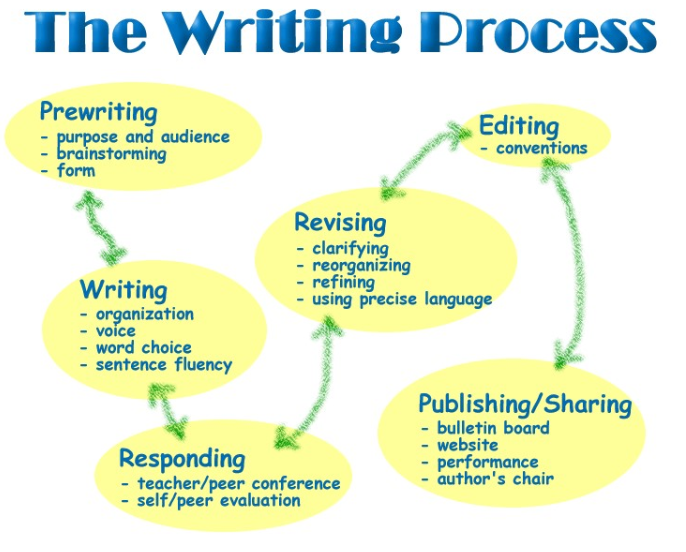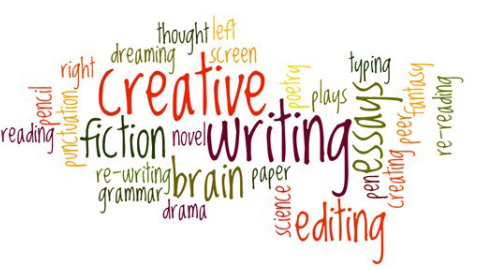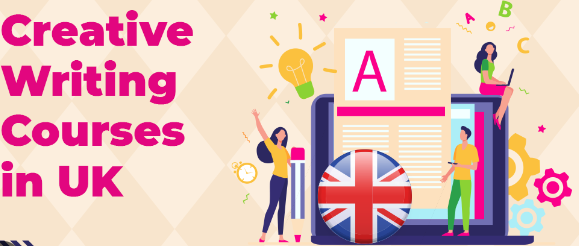A Comprehensive Guide to Creative Writing Programs in UK
25th July 2023 by Fatima Khan
Do you know that there's a creative writing competition happening in the UK for children aged 5 to 11? This competition, supported by the BBC tech, runs from September 26, 2023, to November 10, 2023, with the submission deadline at 8 PM. The event aims to encourage young writers to showcase their talent and imagination.
In this competition, a total of 50 participants will be selected to compete in the grand finale, which will take place in February 2024 at Buckingham Palace. The winners will have the unique opportunity to meet Queen!
During the event, the bronze, silver, and gold winners in two age groups (5-7 and 8-11) will receive exciting prizes.
Additionally, every story submitted will be entered into a random draw, where one lucky winner will receive a ticket to the grand finale, and their school will be awarded a bundle of 500 books and literacy wall art of their choice.
Are you interested in enrolling your child in this competition? Don't delay; register them now! However, if you're worried about your child's creative writing abilities, fret not! Read this article yourself to understand the nuances of creative writing, and then teach and inspire your child. Who knows, they might just be the deserving winner of this prestigious competition!
Let’s learn creative writing!!
Introduction:
Creative writing is an art that allows individuals to express their thoughts, emotions, and imagination in a captivating and original way. Readers are meant to be entertained by creative writing.
Creative writing process:
Words or ideas are conducted by the writer's thoughts during the active process of writing. Literary masterpieces are built upon the first spark of inspiration, which is then triggered by personal interactions and dreams, and then the environment around the writer.
The creative writing process includes:
- Inspiration
- Preparation
- Drafting
- Revision
- Proofreading
- Editing,
- Feedback
- Publication.
Now we describe these in detail:
Inspiration:
The first catalyst of creative writing, observations, dreams, or even a single word or image might inspire the writer.
Preparation:
Once the inspiration strikes, the writer begins to prepare. At this point, the canvas starts to take shape and the purpose of the piece becomes clear. The writer must be aware of his audience and goal to effectively deliver his message.
Drafting:
It's a period of spontaneous invention when ideas flow easily from the mind to the page. During drafting writers don’t care about being perfect instead, they concentrate on writing ideas on paper.
Revision:
The process of turning the unpolished diamond discovered at the drafting stage into a polished jewel is time-consuming but necessary. The language and structure are focused at this stage.
Proofreading and editing:
The key next procedures are editing and proofreading, where problems in grammar, punctuation, and spelling are eliminated.
Feedback:
Peers or mentors give insightful ideas that the writer may have missed so, Feedback is important for writers to enhance their work and to get new perspectives.
Publication:
Through publication, the work ultimately finds its place in the world. The written or spoken word, whether it takes the shape of traditional books, e-books, internet platforms, or spoken word, takes flight and reaches readers' hearts and minds
What Creative Writing Is For?
The field of creative writing has an incredibly broad and varied scope since it is an unbounded space where imagination reigns supreme.
The discipline of creative writing is vast and expanding. Among the many genres and forms, these are a few examples:
Fiction:
Novels, short tales, and flash fiction are all included in this. This genre's authors produce fictional settings, people, and narratives. Whether it's the magical realms of J.K. Rowling, Franz Kafka's existential musings, or Philip K. Dick's science fiction planets, fiction writers shape the fabric of reality by creating tapestries of adventure, emotion, and mystery.
Poetry:
Poetry is a form of art that typically highlights the beauty of rhythm, passion, and language. It can be written in a variety of styles, such as free verse and traditional sonnets. Whether it be in the lovely poems of Maya Angelou, the depressing thoughts of Rupi Kaur, or the timeless wisdom of Robert Frost, poets convey the essence of life in words that ring true in the soul.
Literary Nonfiction:
Real-world events and literary techniques are mixed into literary nonfiction. Memoirs, personal writings, and travel writing fall under this genre.
Memoirs act as a canvas for expressing one's soul and personal travels.
Travel writers embark on trips that go beyond the straightforward description of places and people to capture a location's fundamental character.
Authors with a strong following, like Bill Bryson and Cheryl Strayed, have shown how this genre can captivate readers with tales of growth, exploration, and self-discovery.
Screenwriting:
The screenplays for movies and television are written by authors in this field. A unique combination of skills is required to tell stories using language and visual signals. The blueprints for cinematic experiences and screenplays combine speech, action, and visual storytelling to captivate audiences.
Playwriting:
Playwriters develop theater screenplays similarly to screenwriters do with movies. They write stories with conversation in them for live performances.
Journalism:
Journalism is frequently thought of as a fact-based profession, although it can also include artistic aspects. Reader engagement is achieved through the use of storytelling in features and narrative journalism. By incorporating storytelling approaches into reporting, feature stories and narrative journalism help readers relate to events and issues more deeply. Journalists like Hunter S. Thompson and Joan Didion show that journalism can be as much about art as it is about reporting.
Young Adult Literature:
Creativity and clarity are required when writing for children. The goal of authors in this genre is to inspire, educate, and amuse young readers. Children's literature weaves wonder and visions for young minds. Imaginative tales with fanciful elements, vivid characters, and moral lessons are written by authors. Children's literature appeals to readers of all ages.
Fantasy and science fiction:
Science fiction and fantasy authors travel the universe of the mind in their imagined worlds, building magical worlds populated with mythological animals, investigating other universes, and foreseeing futuristic technologies.
Thriller and horror:
Authors in these genres aim to thrill and terrify readers by utilizing suspense and anxiety to create a visceral experience. Horror and thriller authors are masters at building suspense, terror, and anxiety.
Blogging and content creation:
In the digital age, there are opportunities for writers to develop content for blogs, social media, and websites. As the digital era develops, content creation and blogging are becoming new frontiers for authors.
Uses and Benefits of Creative Writing
In addition to being a form of aesthetic expression, creative writing is a useful ability with real-world uses:
Skills in Communication:
Effectively expressing thoughts and emotions is a talent that creative writers possess that is useful in a variety of occupations.
Critical Analysis:
Critical thinking and problem-solving skills, which are essential in many disciplines, are required to create interesting narratives.
Empathy and comprehension:
Writing from various points of view improves empathy and comprehension of various experiences and viewpoints.
Reflection and Catharsis:
Writing can be therapeutic, allowing people to better understand themselves and process their feelings.
Education and entertainment
Creative writing engages a broad audience by entertaining them while educating them about difficult subjects.
How to learn creative writing in Uk?
We can learn creative writing, in various ways:
- Educated formally
- Online Education
- Workshops
- Mentorship
- Self-study
Now we will describe it in detail:
Educated formally:
Many institutes offer graduate and undergraduate creative writing programs. The benefit of formal education is the access of students to an organized learning environment and highly qualified teaching staff.
Online education:
Many reputable writers and authors, are available on many known websites to teach creative writing. This is beneficial for students from diverse backgrounds.
Workshops:
There is a supportive network of writers. These networks with other libraries, writing communities, etc. hold creative writing workshops for beginners.
Mentorship:
Mentor, a writing expert, offers direction, criticism, and useful advice.
Self-study:
Creative writing is a skill mainly developed by reading and self-study.
Creative Writing Programs in UK:
UK is home to some of the most renowned creative writing programs, offering opportunity to the writers to enhance their skills and immerse themselves in the world of literature.
Best UK universities offering creative writing programs are:
- Royal Holloway, University of London
- Newcastle University
- University of Chichester
- University of Central Lancashire
- Sheffield Hallam University
- Edge Hill University
- University of Birmingham
- University of Leeds
- University of Strathclyde, Glasgow
- University of Warwick
Royal Holloway:
It’s one of the best universities in the UK, given that the Complete University Guide 2023 ranks it #33. The Complete University Guide 2023 declares it #6 in the UK for Creative Writing. The Times and Sunday Times Good University Guide 2022 declares Royal Holloway #1 in the UK for Creative Writing.
There are 3 undergraduate Creative Writing degrees you can choose from:
- English and Creative Writing (BA)
- American Literature and Creative Writing (BA)
- Drama and Creative Writing (BA)
Major Skills you will develop by taking the English and Creative Writing course at Royal Holloway:
- Writing using your unique voice
- Literary criticism
- Writing techniques
- Create and refine artistic work
- Research
- Teamwork
- Presentation
- Communication
- Negotiation
Do you want to become a critical reader and a confident writer at one of the best Creative Writing schools in the UK? Check out the Royal Holloway, University of London!
Newcastle University:
Newcastle University is ranked #122 in the world, according to the QS World University Rankings 2023. It is best for creative writing course because The Sunday Times Good University Guide 2023 ranks Newcastle #2 in the UK for Creative Writing. And the Complete University Guide 2023 ranks it #5 in the same category.
Some of the employability skills you’ll learn by studying the course:
- Making marketing briefs
- Writing website copy
- Creating captivating fiction
- Coming up with persuasive arguments
- Managing projects
- Analysing complex sources and datasets
- Working independently
University of Chichester:
The Times and Sunday Times Good University Guide 2022 ranks it #7 in the UK for Teaching Quality & the Complete University Guide 2023 declares it #10 in the UK for Student Satisfaction.
The Guardian University Guide 2023 ranks it #2 for the Creative writing.
Creative Writing courses:
Creative Writing courses available at Chichester for undergraduates are:
- BA (Hons) Creative Writing
- BA (Hons) Creative Writing and English
- BA (Hons) Creative Writing and History
- BA (Hons) Creative Writing and Philosophy & Ethics
- BA (Hons) Creative Writing and Theology
- BA (Hons) Creative Writing and Screenwriting
- BA (Hons) Screenwriting
You will learn
- Creating Characters
- Writing Non-Fiction
- Visual Storytelling,
- Writing Poetry
- Screenwriting
- Contemporary Short Fiction
- Fiction for Children
Jobs for graduates of University of Chichester:
- Digital Writing
- Journalism
- Copywriting
- Marketing
- Publishing
- Teaching
University of Central Lancashire
University of Central Lancashire is one of the best universities for Creative Writing, because The Guardian 2023 ranks it #3 for Creative Writing in the UK.
Also, Central Lancashire regularly invites literary agents, publishers, professional writers, and editors to help students gain valuable insights regarding their future careers.
Graduates from Central Lancashire have variety of career paths including
- Advertising
- Commerce
- Management
- Publishing
- Journalism
- Writing
- Media
- Teaching
- Publication
The University of Central Lancashire is terrific in helping you find a teaching position, because they have strong links with schools in the region.
Sheffield Hallam University:
The Guardian 2023 ranks Sheffield Hallam #4 for Creative Writing in the UK.
The full-time Creative Writing course at Sheffield Hallam aims to help you tell engaging stories in various forms and genres.
You’ll learn and gain confidence through a variety of methods, including Writing workshops , Trips and Retreats, Lectures, seminars, and personal tutorials, Collaborating with different audiences and organizations, Live performances and readings, Coming up with and pitching ideas, Master classes from expert guest writers.
Careere for Sheffield Hallam graduates:
Sheffield Hallam graduates have successful careers in the following industries, such as:
- Creative Industries (e.g. media, theatre)
- Arts Organizations
- Journalism
- Marketing
- Teaching
- Charity Sector
- Social Work
- Government (local and regional)
Edge Hill University:
The Guardian 2023 ranks Edge Hill #5 in the UK for Creative Writing. And its Creative Writing students have features such as:
- IT Facilities
- Seminar Rooms
- Lecture Theatre
- Tutorial Spaces
Edge Hill offers two main Creative Writing courses:
- Creative Writing BA (Hons)
- Creative Writing and English Literature BA (Hons)
The Creative Writing course at Edge Hill is a practice-led course where you’ll encounter modules such as:
- Fiction
- Scriptwriting
- Poetry
- Games Writing
University of Birmingham:
The University of Birmingham is one of the best universities in the UK. The Complete University Guide 2023 rank it #14 in the UK.
For creative writing you can choose two options:
- English Literature and Creative Writing BA
- Film and Creative Writing BA
You will learn all the major genres in these courses, including, Prose, Poetry, Drama,
- Media Writing.
- Career paths include:
- Marketing Assistant
- Sales and Events Coordinator
- Editorial Assistant
- Account Executive
University of Leeds:
The University of Leeds is one of the best universities in the UK. The Complete University Guide 2023 ranks Leeds #16 in the UK.
By taking the Creative Writing course at Leeds, you’ll experience producing creative writing works such as:
- Life writing
- Poetry
- Fiction
- Travel accounts
Where do Leeds English Literature & Creative Writing graduates go?
They find jobs in variety of fields, such as:
- Marketing
- Journalism
- Education
- Leadership
- Media
- Publishing
- Business
University of Strathclyde, Glasgow:
The University of Strathclyde at Glasgow is renowned for being “the place of useful learning.” True to its reputation, it was named the University of the Year twice by the Times Higher Education University Awards.
Creative writing courses in University of Strathclyde, Glasgow are:
- English & Creative Writing (BA Hons)
- English and Creative Writing & Journalism, Media and Communication (BA Hons)
- English and Creative Writing & Psychology (BA Hons)
- English and Creative Writing & History (BA Hons)
- English and Creative Writing & Law (BA Hons)
- English and Creative Writing & Social Policy (BA Hons)
- English and Creative Writing & Human Resource Management (BA Hons)
Where do University of Strathclyde, Glasgow English Literature & Creative Writing graduates get jobs?
They find jobs in variety of fields, such as:
- Marketing
- Management
- Teaching
- Publishing
- Creative Writing
- Journalism
University of Warwick
The University of Warwick is the #6 Most Targeted University by UK’s Top 100 Graduate Employers according to The Graduate Market in 2021, High Fliers Research Ltd.
Warwick English Literature and Creative Writing BA graduates proceed to work in a variety of careers, after completing the course:
- Authors
- Poets
- Translators
- Dramatists
- Creative directors
- Journalists
- Teachers
- Researchers
Conclusions:
A flexible and satisfying hobby, creative writing has a wide range of genres and forms it might take. If you want to express yourself and engage with people via storytelling, creative writing gives you a platform whether you want to be a novelist, poet, journalist, or content creator.
The path to mastering the craft of creative writing is as varied as the art form itself. Formal schooling, online courses, in-person seminars, or a combination of these may be the best course of action for you. Start writing, value creativity, and never stop learning are the keys. You'll discover that the world of creative writing is endlessly intriguing and satisfying to explore as you develop your imagination and talents.
Categories : books ,competitions ,education ,jobs ,languages ,jobs ,languages ,online-tuition



